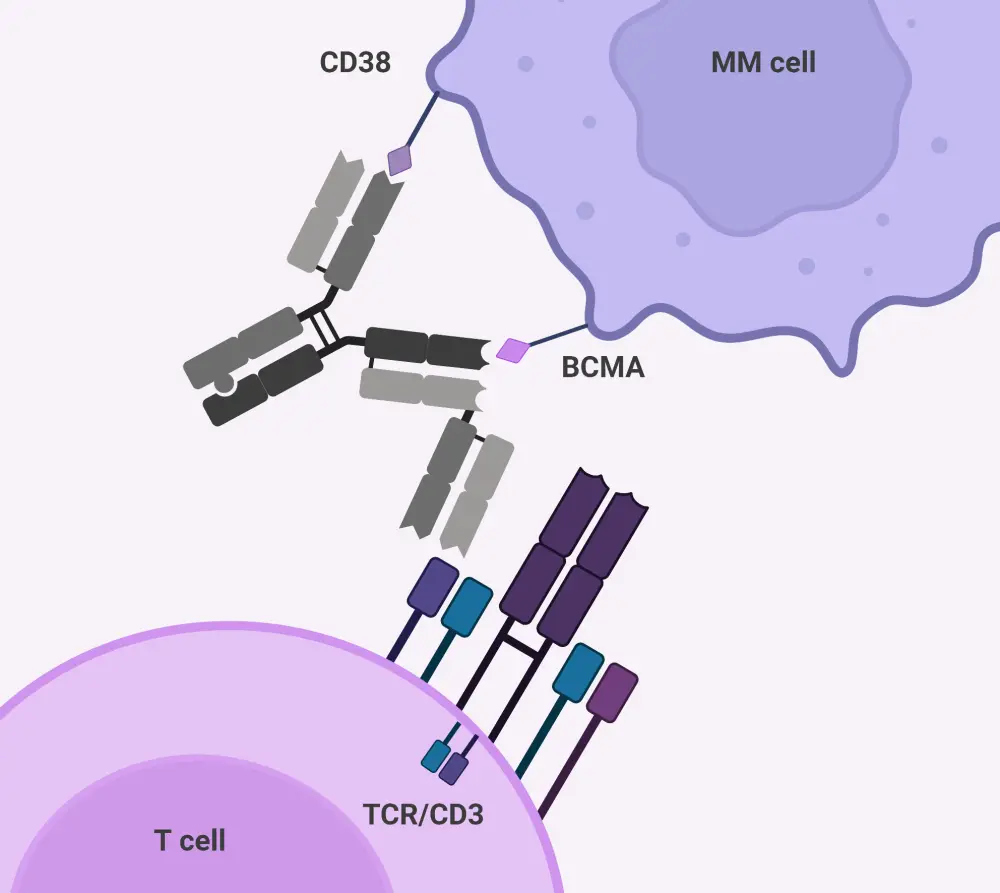All content on this site is intended for healthcare professionals only. By acknowledging this message and accessing the information on this website you are confirming that you are a Healthcare Professional. If you are a patient or carer, please visit the International Myeloma Foundation or HealthTree for Multiple Myeloma.
The mm Hub website uses a third-party service provided by Google that dynamically translates web content. Translations are machine generated, so may not be an exact or complete translation, and the mm Hub cannot guarantee the accuracy of translated content. The mm and its employees will not be liable for any direct, indirect, or consequential damages (even if foreseeable) resulting from use of the Google Translate feature. For further support with Google Translate, visit Google Translate Help.
The Multiple Myeloma Hub is an independent medical education platform, sponsored by Bristol Myers Squibb, GSK, Legend Biotech, Pfizer, and Roche. Funders are allowed no direct influence on our content. The levels of sponsorship listed are reflective of the amount of funding given. View funders.
Now you can support HCPs in making informed decisions for their patients
Your contribution helps us continuously deliver expertly curated content to HCPs worldwide. You will also have the opportunity to make a content suggestion for consideration and receive updates on the impact contributions are making to our content.
Find out more
Create an account and access these new features:
Bookmark content to read later
Select your specific areas of interest
View multiple myeloma content recommended for you
FDA grants orphan drug designation to ISB 2001
On July 7, 2023, the U.S. Food and Drug Administration (FDA) granted orphan drug designation to ISB 2001, a first-in-class trispecific antibody, for the treatment of relapsed/refractory multiple myeloma.1 At the 2023 American Association for Cancer Research (AACR) Annual Meeting, Perro2 shared the initial preclinical data on the feasibility of ISB 2001 in relapsed/refractory multiple myeloma. The Multiple Myeloma Hub summarizes this presentation here.
ISB 20012
ISB 2001 is a T cell-engaging trispecific antibody, featuring three antigen-binding arms to simultaneously bind CD3 on T cells and BCMA/CD38 on myeloma cells (Figure 1). Targeting both BCMA and CD38 increases avidity-based binding, increasing specificity to myeloma cells and subsequently cell death.
Figure 1. Mechanism of action of ISB 2001*

*Adapted from Perro.2 Created with BioRender.com.
Key points2
- In vivo, ISB 2001 resulted in a complete remission rate of 100% in a mouse model.
- The half-life in a human FcRn transgenic mouse model was 7.6 days.
- Ex vivo, ISB 2001 demonstrated increased rates of cytotoxicity compared with other BCMA-targeted T cell engagers: alnuctamab, teclistamab, and EM-801.
- Ex vivo, ISB 2001 demonstrated higher potency in smoldering, newly diagnosed, and RRMM than teclistamab.
References
Please indicate your level of agreement with the following statements:
The content was clear and easy to understand
The content addressed the learning objectives
The content was relevant to my practice
I will change my clinical practice as a result of this content
Your opinion matters
On average, how many patients with MGUS/smoldering MM do you see in a month?

